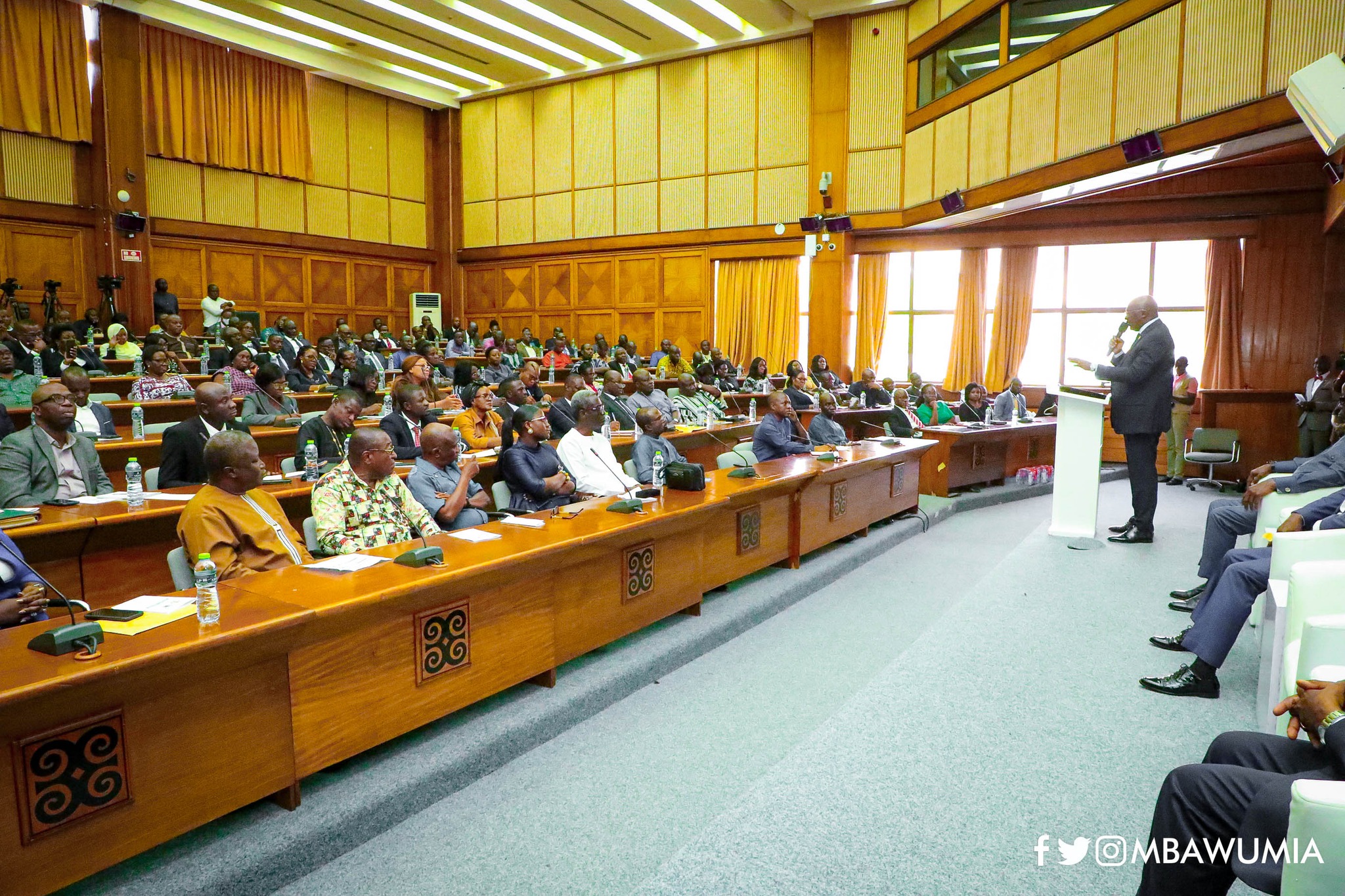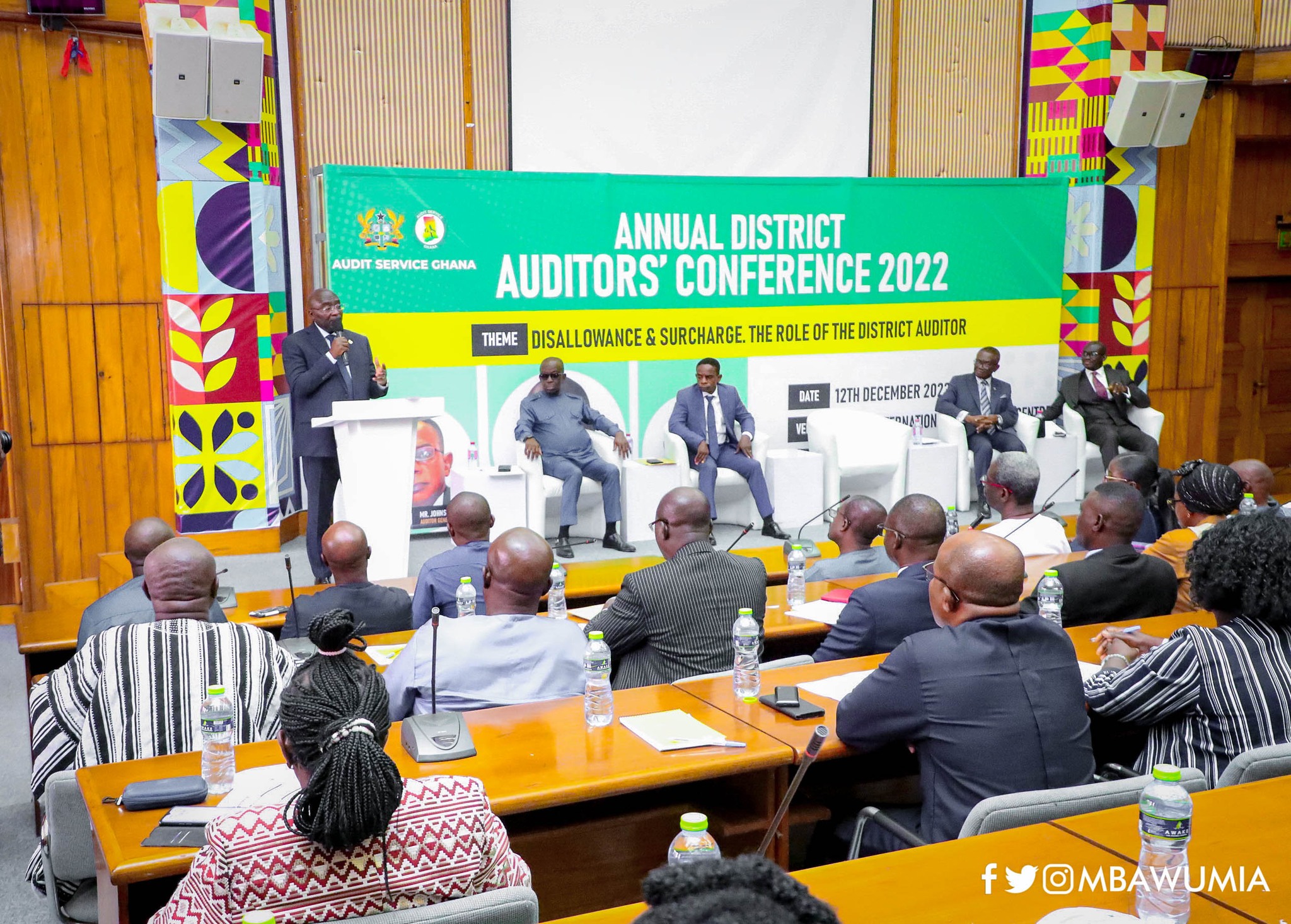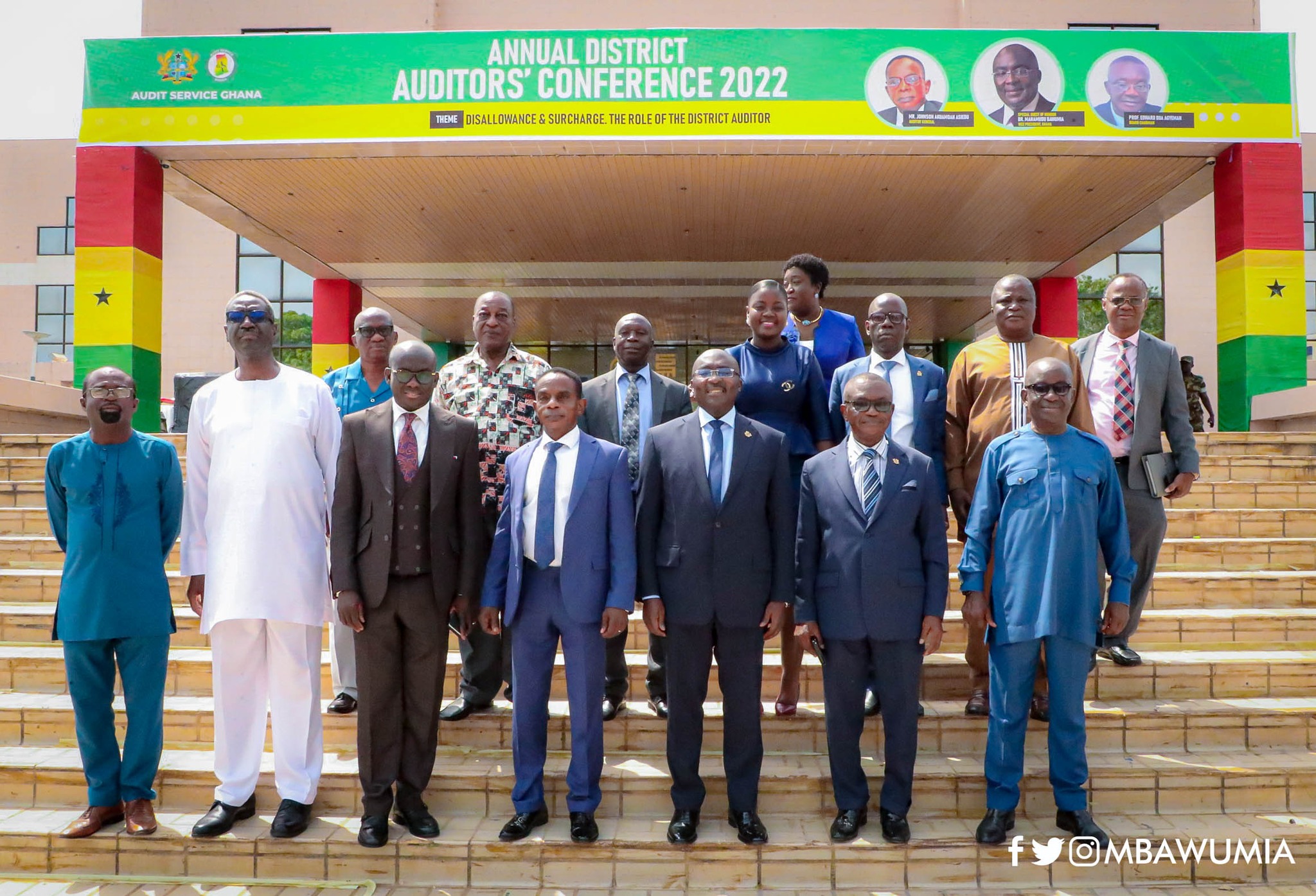Salutations
- Hon Minister for National Security, Mr. Albert Kan Dapaah,
- Hon Minister for Justice and Attorney General, Mr Godfred dame,
- Chairman and members of the Audit Service Board,
- Chief Directors,
- Directors of MDAs present,
- Deputy Auditors-General,
- Regional and District Auditors,
- Distinguished Ladies and Gentlemen
1. It is a great honour to be here with you this morning to open the second edition of the annual District Auditors’ Conference of the Audit Service.
2. I wish to commend the Audit Service for creating space on your busy calendar for your District Auditors to meet and brainstorm on how you will continue to support the Auditor- General to deliver on his mandate.
3. Distinguished Ladies and Gentlemen, over the years the reports of the Auditor-General on the audit of public accounts have disclosed a number of corrupt activities such as financial improprieties such as misappropriation of funds, payroll fraud, and contract and procurement irregularities.
CORRUPTION
On assuming office, corruption was prevalent in many areas such as:
– Paying bribes to get a drivers licence through goro boys
– Paying bribes to get a passport through goro boys
– Paying bribes to customs officers at the ports to clear goods
– Inadequate funding for anti-corruption agencies
– Non-Passage of the Right to Information Law
– Difficulty of renewing NHIS membership across the districts
– Absence of legal backing for a beneficial assets register
– No law on Witness Protection
– Missing dockets at the courts
– Corruption in the distribution of cases to favoured judges
– Fake motor insurance certificates,
– Fake road worthiness certificates
– Fake vehicle registration plates
– Etc.
ANTI – CORRUPTION MEASURES
Since 2017, our Government has taken several steps to deal with corruption:
DIGITIZATION
1. The Government’s implementation of a digitization agenda is disrupting corruption in the public sector:
- DVLA – Introduction of the digital drivers licence and vehicle registration as well as the online application has eliminated bribery and “goro” boys.
- Passport Office- – Online applications have eliminated bribery and goro boys.
- Ports – paperless port, elimination of long room, and streamlined inspections and enhanced enforcement has virtually eliminated corruption in the clearing of goods.
- NHIA- Renewal of NHIS Membership – introduction of a mobile application to do this has eliminated corruption in the process.
- Ghana. Gov supported which is a single portal to access all government services has been implemented. 1018 out of 1052 MDAs have been onboarded. Through this portal, most government services to be accessed and paid for electronically through the Ghana.Gov platform. This means that government.
services can be accessed and paid for by the public without having to go personally to the MDA to fill a form of bribe someone. - The integration of the DVLA and National Insurance Commission databases means the travelling public as well as law enforcement officers are able to use their mobile phones to check the validity of vehicle insurance, road worthiness and vehicle registration certificates.
LAWS
a. The Witness Protection Act, 2018 (Act 959),
b. The Office of the Special Prosecutor Act, 2018 (Act 959),
c. The Right to Information (RTI) Act, 2019 (Act 989), and
d. The Companies Act, 2019, (Act 992). -Provides a framework for enacting a beneficial ownership register
BUDGETARY ALLOCATIONS
2. Government has increased budgetary allocations to all the accountability institutions of State, including Parliament of Ghana, the Judiciary, CHRAJ, EOCO, the Office of the Attorney-General and Ministry of Justice, the Auditor General, the Office of the Special Prosecutor and the Ghana Police Service.
3. To further boost the fight against corruption, deficits in logistics and personnel of law enforcement agencies, especially the Ghana Police Service, and other accountability institutions, are being addressed.
4. The anti-corruption measures notwithstanding, when corrupt activities such as financial improprieties such as misappropriation of funds, payroll fraud, and contract and procurement irregularities take place, the expectation of the taxpayers is that the public officials who commit these financial crimes would be sanctioned according to law. One of the functions of the Auditor-General which can combat these financial malpractices is disallowance of any item of expenditure which is contrary to law and surcharge the amount of any expenditure disallowed.
5. The public, and, in particular the Civil Society Organisations have expressed dissatisfaction that the Auditor-General has not performed this critical function effectively. I am informed that the District Auditors will use greater part of this conference to discuss this very important topical issue of disallowance and surcharge.
6. I expect the Auditor-General and your District Auditors to address the following questions: What are the causal factors that have contributed to the failure of the Auditors-General over the years to perform their function to disallow any item of expenditure which was found to be contrary to law and surcharge the amounts of any expenditure disallowed?
What can be done to ensure that the Auditor-General performs his functions under the enabling laws to prevent public officials wilfully causing financial loss through misuse, misappropriation or the mismanagement of public funds?
7. Ladies and Gentlemen, section 18 of the Audit Service Act, 2000 (Act 584) mandates the Auditor-General to disallow and surcharge public officials as I have earlier said.
8. When we go back to section 17 of Act 584, the section directs the Auditor-General to specify to the head of department in the public or civil service, who is an official of the executive who has committed the offence to sanction the official and collect any amount due from the official.
9. This is where the difficulty in the implementation of disallowance and surcharge by the Auditor-General begins.
10. Ladies and Gentlemen, I also expect the District Auditors, in their deliberations, to address the following additional questions:
Should the Auditor-General disallow and surcharge an official after the official has submitted an unsatisfactory and, therefore, unacceptable responses to the audit observations so that the record of the disallowance and surcharge will appear in the Auditor-General’s report to Parliament as such?
- Should the Auditor-General disallow and surcharge an official immediately on issuing his final report and submitting it to Parliament?
- Should the Auditor-General disallow and surcharge an official only after the Public Accounts Committee (PAC) has deliberated on the reports and Parliament has endorsed the recommendations of (PAC)?
11. Ladies and Gentlemen, in the first instance the disallowance and surcharge will appear in the Auditor- General’s final report to Parliament and will become a public record.
12. In the second instance the record of disallowance and surcharge will not be in the Auditor-General’s respective report but it may appear in the subsequent reports.
13. In the third instance the record of disallowance and surcharge may appear as a “direction” from Parliament to the Auditor-General to sanction the official, which will be contrary to the law because in the performance of his functions under the Constitution or any other law the Auditor- General shall not be subject to the direction or control of any other person or authority.
14. Distinguished ladies and Gentlemen, let me leave these issues to the Auditor-General and his District Auditors to ponder over them. But let me assure the Auditor-General and Members of the Audit Service Board that in the same spirit of cooperation, the Government of Nana Addo Dankwa Akufo-Addo will continue to provide the necessary support to the Audit Service to ensure that it operates independently as the Constitution of the Republic of Ghana mandates. Let me put on record that the timeliness of the Auditor Generals reports to parliament in recent years has been the best. The Audit Service is doing an excellent job and the Board, Management and Staff deserve to be commended.
I wish you a successful conference.
Thank you for your attention,
God Bless you and
God bless our homeland Ghana.





